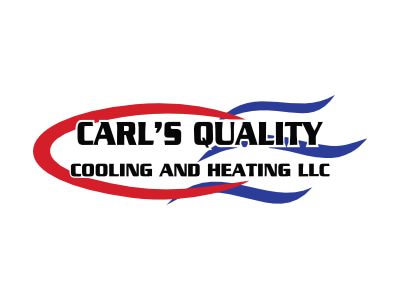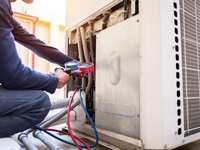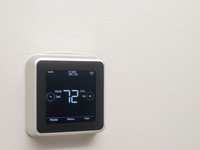- Categories :
- More
Resolving Efficiency Issues in Commercial Refrigeration Systems

Commercial refrigeration systems are essential for businesses that need to keep perishable items at optimal temperatures. Ensuring these systems run efficiently is crucial for preserving the quality of stored goods and reducing energy costs. However, several factors can lead to efficiency issues, making it necessary to understand and address them promptly.
Common Efficiency Issues in Commercial Refrigeration Systems
Efficiency issues in commercial refrigeration systems can arise from various sources. Identifying the root causes early on can prevent bigger problems and ensure smoother operation. Here are some common issues that can impact efficiency:
1. Dirty Condenser Coils: Over time, condenser coils can accumulate dirt and debris, causing the system to work harder to expel heat. This extra strain reduces the system’s efficiency and can lead to more frequent breakdowns. Regular cleaning of these coils is essential to maintain optimal performance.
2. Refrigerant Leaks: Low refrigerant levels due to leaks make the compressor work harder, consuming more energy while providing less cooling. Leaks need to be detected and repaired promptly by our professionals to restore efficiency.
3. Poor Insulation: Inadequate insulation can cause cold air to escape, forcing the refrigeration system to work harder to maintain the desired temperature. Ensuring doors and seals are in good condition can help maintain proper insulation.
4. Faulty Thermostats: Malfunctioning thermostats can result in incorrect temperature readings, causing the system to run more frequently or not at all. Trust our technicians to calibrate or replace faulty thermostats to keep the system running efficiently.
5. Blocked Airflow: Obstructions in airflow around the cooling unit reduce its efficiency. Maintaining clear space around the unit allows for proper air circulation, ensuring the system doesn’t have to overexert itself.
Routine Maintenance Practices to Improve Efficiency
Routine maintenance is crucial for ensuring the long-term efficiency and reliability of commercial refrigeration systems. Implementing a regular maintenance schedule can help identify potential problems before they become major issues. Below are some key maintenance practices:
1. Regular Cleaning: Ensure that components, especially condenser coils and evaporator coils, are cleaned regularly to remove dirt and debris. This practice helps maintain efficient heat exchange and reduces strain on the system.
2. Inspect Door Seals: Examine door gaskets and seals to ensure they are not worn or damaged. Replacing faulty seals can prevent cold air from escaping and reduce the workload on the refrigeration unit.
3. Check Refrigerant Levels: Routine checks of refrigerant levels can help detect leaks early. Maintaining the correct refrigerant levels is essential for efficient cooling and operation of the system.
4. Calibrate Thermostats: Regular calibration of thermostats ensures accurate temperature control. This prevents the system from overcooling or undercooling, both of which can affect efficiency and energy consumption.
5. Inspect Fans and Motors: Ensure that fans and motors are in good working condition. Lubricate moving parts as needed to prevent friction, which can cause the system to work harder than necessary.
6. Scheduled Professional Inspections: Regular inspections by our professionals can identify hidden issues that might not be immediately apparent. Professional assessments can help in maintaining the overall efficiency and longevity of the system.
Upgrading Components for Better Performance
Upgrading specific components in your commercial refrigeration system can lead to significant improvements in performance and energy efficiency. Investing in modern, high-efficiency parts can have long-lasting benefits for your business.
1. Energy-Efficient Compressors: Replacing old compressors with energy-efficient models can substantially reduce energy consumption. Modern compressors often operate more quietly and require less maintenance.
2. Advanced Thermostats: Upgrading to programmable or smart thermostats allows for precise control of temperatures, leading to better energy management. These advanced thermostats can adjust cooling based on usage patterns, reducing unnecessary energy use.
3. High-Efficiency Fans and Motors: Newer fans and motors are designed to use less energy while providing the same or better performance. Upgrading these components can decrease energy costs and improve airflow efficiency.
4. Improved Insulation Materials: Using better insulation materials can prevent cold air from escaping, keeping the system efficient. Improved insulation reduces the strain on the system and helps it maintain optimal temperatures.
5. Modern Refrigerants: Switching to environmentally friendly and efficient refrigerants not only improves cooling performance but also aligns with regulatory standards. New refrigerants often perform better and have less environmental impact.
Best Practices for Energy Management
Implementing best practices for energy management can lead to substantial efficiency gains in commercial refrigeration systems. Managing energy use effectively ensures that your system operates optimally and costs are kept in check.
1. Regular Energy Audits: Conducting regular energy audits helps identify areas where energy is wasted. Our professionals can pinpoint inefficiencies and suggest corrective actions to optimize energy use.
2. Temperature Optimization: Setting the right temperatures for different types of stored goods can prevent overcooling. Avoid setting temperatures lower than necessary, as this can lead to higher energy consumption.
3. Proper Airflow Management: Keep the area around your refrigeration units clear to ensure proper airflow. Obstructed airflow makes the system work harder, increasing energy usage and reducing efficiency.
4. Load Management: Avoid overloading the refrigeration units. Properly spaced items within the unit allow for better air circulation and more efficient cooling.
5. Lighting Efficiency: Use energy-efficient LED lighting inside refrigeration units. LED lights produce less heat compared to traditional lighting, reducing the cooling load on the system.
Conclusion
Addressing efficiency issues in commercial refrigeration systems is essential for maintaining optimal performance and reducing operational costs. By understanding common efficiency problems and implementing routine maintenance practices, you can ensure your refrigeration units run smoothly. Upgrading key components and adopting best practices for energy management can further enhance performance and efficiency.
For expert guidance and reliable solutions, trust the team at Carl’s Quality Cooling and Heating LLC. Our professionals are dedicated to helping you achieve maximum efficiency in your commercial refrigeration in Willis. Contact us today to schedule an inspection and explore your options for optimizing your refrigeration performance!

















